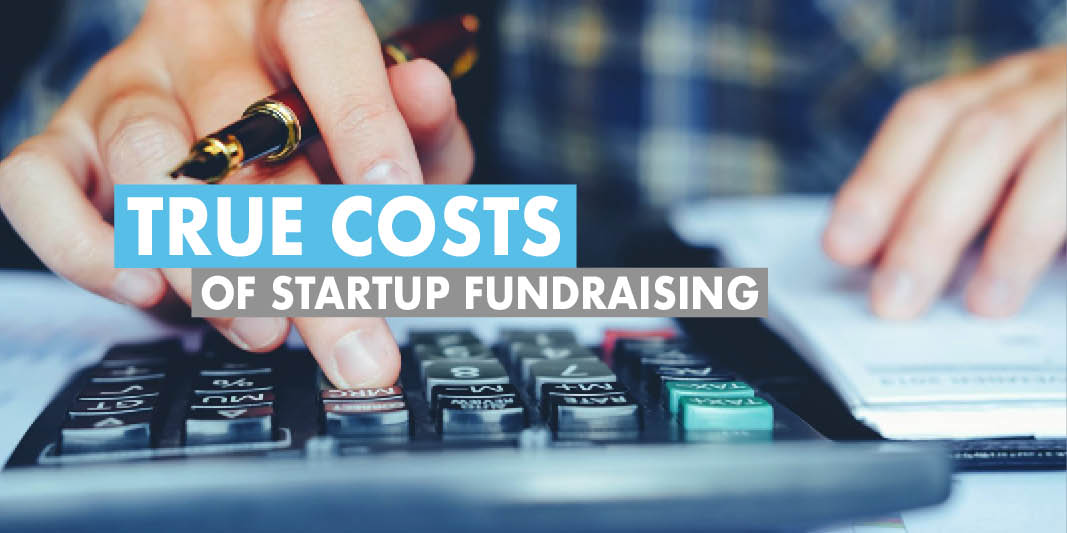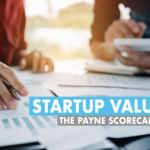Hidden Fees and Misperceptions
Costs of venture capital funding
Founders and business angels often see external advisors during startup fundraising as an unnecessary cost they are not willing to bear. In only very few cases we have seen business angels having a strong enough network, willingness to invest time and resources and skills to support all their startups’ fundraising in multiple rounds. Sometimes this means that they had to raise for five companies at the same time and provide one bridge round after the other themselves. Is that efficient? No. Is it necessary? Also no. Let us shed some light on what the real pros and contras of fundraising management are. There are often ‘hidden’ or misperceived financial consequences of a seemingly ‘easy’ way of raising money.
The truth is, fundraising will always cost roughly the same, whether you use external advisors or not – the only thing that’s different that having your founding team tied up in fundraising will cause really high opportunity costs (on-top). We have seen founders losing more than 30% of their growth momentum over 6 months because of running fundraising themselves. This was not only damaging their valuation, but also cost them some key talent that left the sinking ship.
Why startup fundraising cost will cost the same with or without advisors?
The answer is simple- lawyers will overcharge, tax advisors as well, and if you calculate the hours that a business angel invested at 30% of the rate of a professional – you’d end up at the same amount. It will simply take more time, if she or he does not have a specialised team behind them supporting this endeavour.
Professionals are called professionals because a certain job is their profession. They have teams holding hundreds of valuable relationships up over years. They are used to preparing legal documents and are usually very tight on cost-controlling of other advisors like lawyers or tax-professionals. A rule of thumb is: A good investment advisor saves you at least his cost on other bills during the startup fundraising process. In addition, you will very likely end up with a better deal (terms & conditions), in a healthier company (because founders remained focused on growth) and your investment will gain in value.
International Standards for Transaction Fees
Transaction fees for M&A deals, as well as private equity or venture capital transactions apply for fundraising advisors as well. Those fees follow clear market standards, while payment conditions – like retainers, one-time fees or pure success agreements may be negotiated on a per-case basis. We always recommend finding a solution that works for both sides and is fair in compensation – as it is all about a job which needs to get done. For larger deals it is common to agree on a monthly retainer, usually for a period of 6 to 9 months, between EUR 5,000 to EUR 15,000, depending on the complexity of the underlying deal. Those retainers are usually deducted from the final success-fee once the deal is closed.
Today the so called ‘Modern Lehman Formula’ or ‘Modern Lehman Scale’, is the base for a fair transaction fee and it is simple to calculate:
- 10% of the first EUR 1 million, plus
- 9% of the second EUR 1 million, plus
- 8% of the third EUR 1 million, plus
- 7% of the fourth EUR 1 million, plus
- 6% of the fifth EUR 1 million, plus
- 5% of the sixth EUR 1 million, plus
- 4% of the seventh EUR 1 million, plus
- 3% of the eighth EUR 1 million and everything above.
This scale was originally invented by Lehman Brothers (a large investment bank prior to the Global financial crisis) in the 1970s. Due to inflation, there have been a couple of adjustments to the original formula over the years. Nevertheless, from today’s viewpoint, transaction advisory costs are half of what they used to be. Practically, this means that while the fees have increased three-fold compared to the original formula, there has been a six-fold increase in prices due to inflation. As we can see, hiring a transaction service provider has become more affordable over time.
Let us put the ‘Modern Lehman’ scale into perspective. We have discussed this topic hundreds of times with founders and their investors. A common misconception is that crowd investing platforms are cheap, when simply the opposite is the case. Considering that those platforms usually don’t provide any additional service on top of their listing and network, they still charge a 6% to 15% fee in Europe. In most cases a startup will invest an additional 5% of the target investment amount into online (e.g. social media) and PR campaigns to boost its crowd-investing. Additionally, there will be lawyers involved, at least to check the contracts of the platform and to provide proper deal documentation for their client. All-in-all this sums up to a rather expensive deal, without even considering that crowd money is “stupid money”, with no additional value added.
A professional fund or business angel will provide added value, and this will increase the value of the company down the road. Those investors might ask for lower valuations and a little bit of a say in the firm, but it will make for a much better deal in the end.
Highly Recommended
European Super Angels Club, offers the best out of both worlds – Angel Network and Venture Capital – for startups. Investments are syndicated in a dedicated venture fund, managed by Venionaire Ventures (Luxembourg). Startups may decide between
a.) a EUR 2,500.- fee (on-time) and a transaction fee of 6%, or
b.) a fully success-based fee of 8%.
European Super Angels Club works with a high class network of investors, prepares term-sheets and will take care of legal preparation with a startup. A vendor Due-Diligence (Investment Opinion) is included and valuations and terms are known to be balanced. Personal introductions throuhg members and partners of the club, will help to stick out of the dealflow – but the analyst process is very standardised as the club wants to offer every startup the same chance.
Berthold Baurek-Karlic is Founder and CEO of Venionaire Capital, with many years of experience as a serial entrepreneur, corporate finance expert and early-stage investor. He supports the startup ecosystem in various roles such as President of the European Super Angels Club, Board of Austrian Private Equity and Venture Capital Association and General Secretary of Business Angel Institute.




